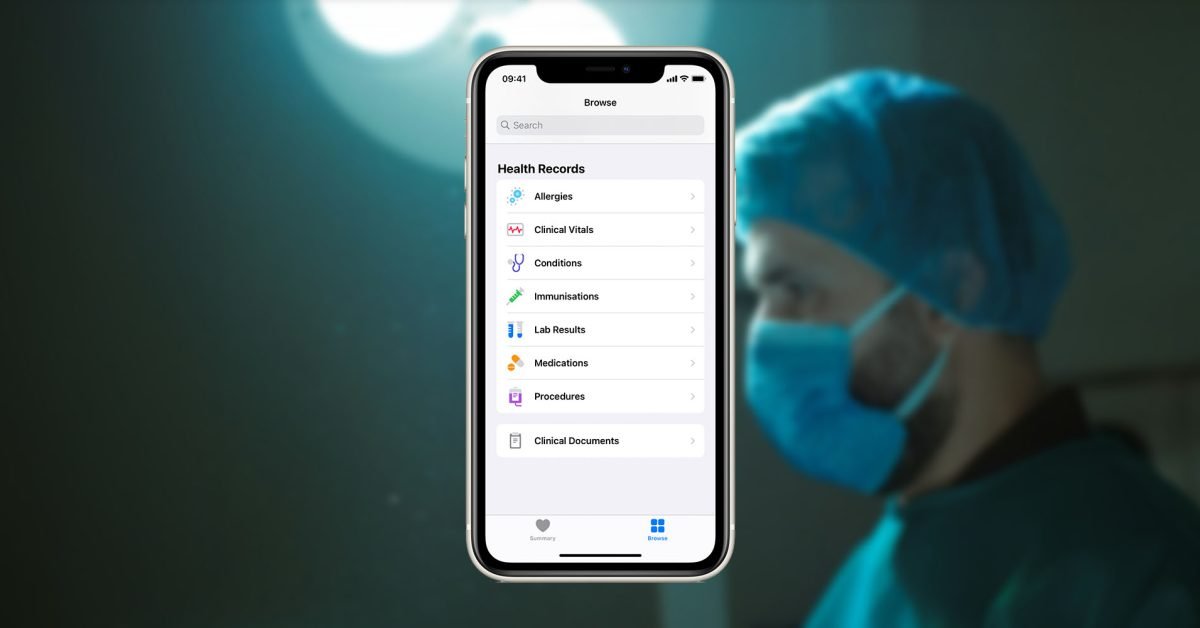
Surgical complications brought home the value of Apple’s Health Records
-
by Anoop Singh
- 4

Apple first launched its Health Records feature way back in 2018, to provide a unified view of our own health records.
Recent complications following surgery really showed how valuable this could be if universally adopted, not just for us as patients, but also to assist healthcare providers in delivering the best standard of care …
While the feature has been trialled in the UK, it hasn’t rolled out broadly – and my own experience illustrated the gap it could fill.
I’ll spare you the gory details, but I recently had abdominal surgery which unfortunately resulted in two complications, including a major infection. The short version of what this involved in terms of healthcare is:
- Surgery in one hospital
- Two ER admissions to a different one
- Blood tests for the infection at a separate urgent care center
- An out-patient appointment at hospital 1
- An out-patient appointment at hospital 2
- A consultation with the surgeon at hospital 1
- Follow-ups with a video-based family doctor service
Apple’s Health Records feature would have been perfect
One significant issue which arose with all this was that records took time to be updated, and not all records were visible to all healthcare providers at the time. Indeed, the urgent care center didn’t seem to have any ability at all to gain write-access to my health records.
This meant that almost every time I saw or spoke to someone, it was left to me to fill them in on the full history of these events.
Fortunately I have learned from past experience the importance of keeping detailed notes. I used the Notes app on my iPad and iPhone to create a detailed timeline, with dates, times, doctors, tests, diagnoses, and symptoms. I could then run through this as needed to provide clinicians with a full picture.
But it seemed crazy that the only person with a complete record at any given point was me, and two of the clinicians pointed out that the info I’d collated had significantly impacted their view of what was going on. They then needed to make calls to get the actual records they needed.
If Apple Health Records were universally adopted, then I would have had not only my own log, but also direct links to all of the documentation. I could have immediately shared those links with each of the clinicians, and it would have been a much smoother experience.
Health tech also played an important role
Health tech also played an important role. My Oura Ring provided temperature logs, so there was a record of when the fever began and when it broke. This proved important in indicating the severity of the infection ahead of the results coming back from the lab.

Additionally, my O2 sats were worrying low at one point while I was in hospital, but I was able to open the app to check previous readings, providing both me and the doctor with reassurance that this was a transient issue and that my normal levels are high.

(This also underlines my point that Apple really needs to resolve the blood oxygen issue with the Apple Watch.)
Wrap-up
Apple’s Health Records feature was presented by Apple as a way to empower patients.
“We designed Health Records on iPhone to empower people to easily view their health records at any time, and we are thrilled to put this feature in the hands of customers in the UK and Canada,” said Kevin Lynch, Apple’s vice president of Technology. “We believe people should have access to their health information in the most private and secure way, and we have worked hand in hand with healthcare institutions and organisations to put privacy at the centre of the patient experience.”
That’s an important role, for sure. But what my experience demonstrated is that the feature could not only benefit us as patients, but also ensure clinicians have immediate access to all the information they need to properly care for us. I very much hope it will be adopted universally.
Image: 9to5Mac collage of images from Apple and Christian Harb on Unsplash
FTC: We use income earning auto affiliate links. More.
Apple first launched its Health Records feature way back in 2018, to provide a unified view of our own health records. Recent complications following surgery really showed how valuable this could be if universally adopted, not just for us as patients, but also to assist healthcare providers in delivering the best standard of care ……
Apple first launched its Health Records feature way back in 2018, to provide a unified view of our own health records. Recent complications following surgery really showed how valuable this could be if universally adopted, not just for us as patients, but also to assist healthcare providers in delivering the best standard of care ……
